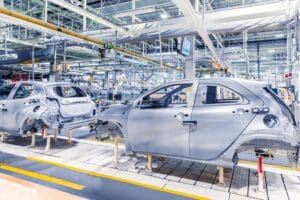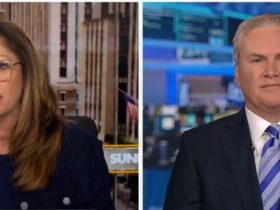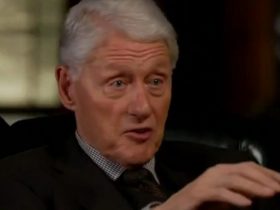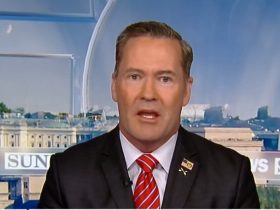Stellantis, the automotive giant behind Vauxhall, Fiat, Jeep and Peugeot, has warned it expects a €2.3 billion loss for the first half of 2025, blaming a mix of Donald Trump’s newly imposed global trade tariffs, declining vehicle demand in Europe, and the cancellation of its hydrogen fuel programme.
The loss represents a sharp reversal of fortunes for the Franco-Italian-American group, which posted a €5.6 billion profit in the same period last year.
In an earnings update, Doug Ostermann, Stellantis’s chief financial officer, said the company had incurred €300 million in costs directly tied to new US trade levies and supply chain disruption after the White House implemented sweeping tariffs in April. Production was temporarily paused in North America as the company awaited clarity on tariff details, contributing to a 6% global drop in shipments for the second quarter.
“We responded swiftly, but there was a near-term hit to output and sales,” Ostermann said.
Restructuring charges weigh heavily
On top of trade-related disruption, Stellantis booked €3.3 billion in pre-tax charges, linked to:
• The termination of its hydrogen fuel cell vehicle programme
• Provisioning for fines associated with legacy CO₂ emissions non-compliance in the US
• Increased investment in hybrid models for Europe and larger petrol-powered vehicles for the American market
The cancellation of the hydrogen project marks a dramatic pivot from its ambitions announced just two years ago. In 2022, Stellantis hailed the opening of the world’s first manufacturing plant for hydrogen-electric commercial vehicles. However, the group now says the lack of fuelling infrastructure, high capital costs, and poor consumer uptake have rendered the project unviable.
Stellantis is not alone in feeling the strain. Renault also downgraded its full-year outlook earlier this month, pointing to disappointing sales in June and a weaker-than-expected recovery in core European markets.
Meanwhile, Stellantis’s decision to suspend its full-year financial guidance back in April now appears prescient, as global uncertainty—fuelled by Trump’s trade war and sluggish consumer demand—continues to cloud the outlook for carmakers.
New CEO Antonio Filosa, who took over in May following the exit of Carlos Tavares, described the start to 2025 as a “tough first half with increasing external headwinds” but said he remains committed to delivering “a year of gradual and sustainable improvement.”
Markets responded cautiously to the update, with analysts acknowledging that while the numbers were worse than expected, the scale of the challenges facing the sector meant the results were broadly anticipated.
Philippe Houchois, an automotive analyst at Jefferies, said: “Stellantis’s figures are worse than consensus, but poor numbers were expected. The key question is how quickly the company can recover market momentum and operational consistency.”
With its core US operations under pressure, demand falling for light commercial vehicles in Europe, and the shift away from hydrogen adding to strategic uncertainty, Stellantis is under mounting pressure to restore investor confidence and navigate a volatile global trade environment.
Whether its pivot toward hybrids and focus on high-margin models can offset these headwinds in the second half of 2025 remains to be seen.
Read more:
Vauxhall owner Stellantis warns of €2.3bn loss as US tariffs and Europe slowdown take toll











